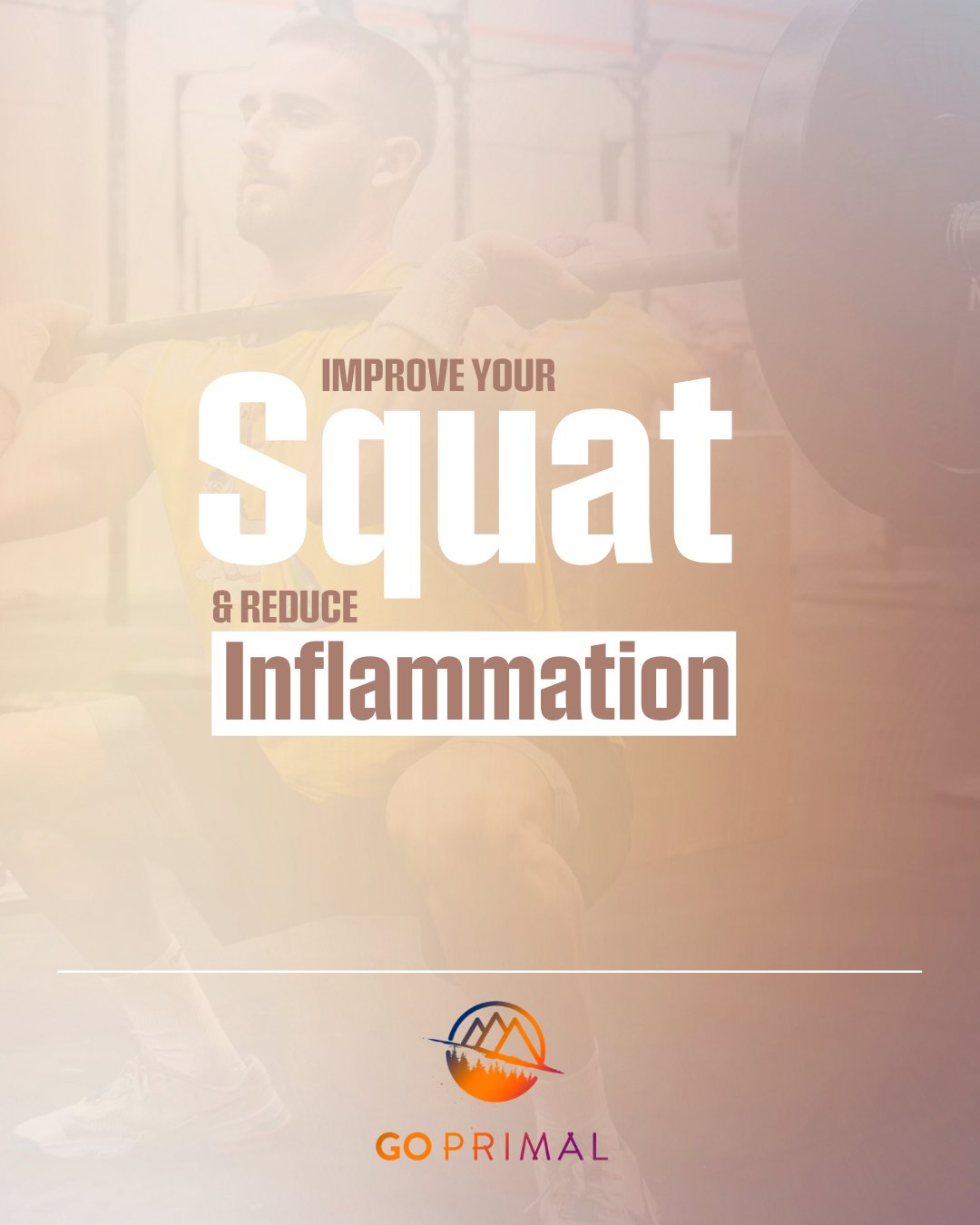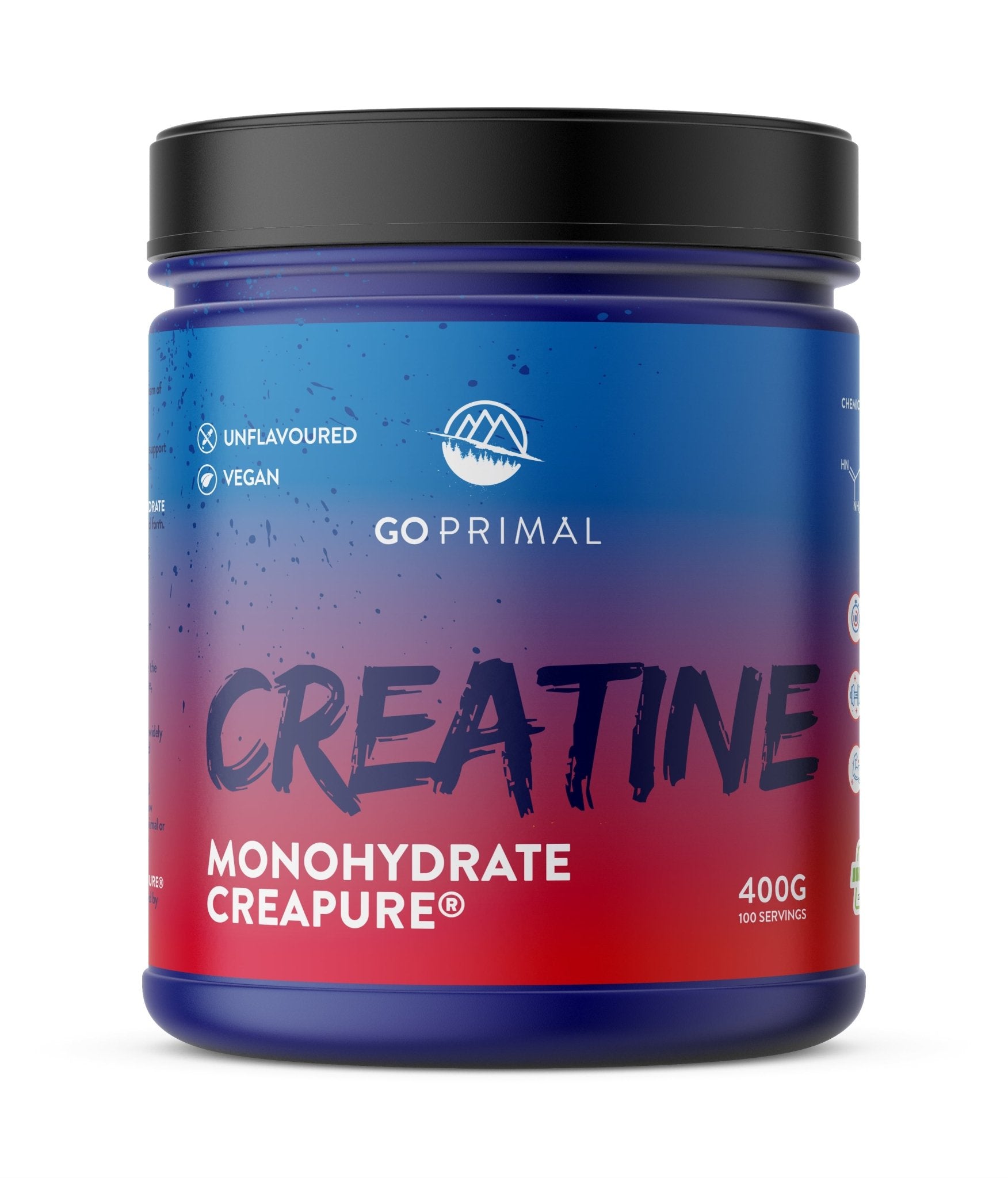
Improve Your Squat and Reduce Inflammation
Looking for ways to improve your squat and reduce inflammation during your training? Here you’ll find the best ways to achieve these goals!
Whether you recently started squats or have been doing this exercise for years, you need to learn if you don't know how to do it the right way. Achieving perfections at your squat is a way to avoid injuries or inflammation, which can affect your performance (1). Would you like to be on bed rest for several days just because you couldn’t do better squats and end up getting an inflammation or injury? Of course, you wouldn’t like this! If you want to know how to avoid inflammation when squatting, keep reading.
So, before you squat heavier, you need to learn how to do it the right way to get the best results and avoid inflammation. Read this post to learn all you need to know to make your squat game strong while keeping inflammation at bay.
Is Inflammation Affecting Your Training?
Let's suppose you add petrol to one car and water and petrol to the other. Will both the cars show the same performance? A clear no. The car with petrol will run normally, while the car with petrol and water will be slowed or may not even run because its engine will be affected.
Same is the scenario with your body. You have to be healthy to do strenuous exercises, like the squat. If you have an inflammation or injury, your performance will be compromised (2). If you do training with inflammation, the recovery time will increase because you're putting more pressure on the already affected tissues.
If you have an inflammation, it’s better to have a short rest but also do some recovery work. This time is required to get rid of the lymphatic fluid from the infected area. Muscles and fibres also utilize this time to heal themselves and regenerate new healthy tissues. Click here for How to recover and regenerate faster
How Is Inflammation Caused During Squat?
Pain is the triggering factor for inflammation during the squat. The most commonly affected areas and reasons for inflammation are the following:
Knee Pain
Knee pain (3) leads to knee inflammation. Many conditions can cause pain in the knee that will eventually cause inflammation. The most common causes are:
- Osteoarthritis
- Patellofemoral
- Iliotibial band (IT-band) syndrome
- Bacterial joint inflammation
Hip Pain. What cause hip pain and how to get rid of hip pain when squatting.
The deep “pinch” sensation in the front and back of the hip is known as hip impeachment. It usually happens at the end of the squat. A more common term for hip pain is femoroacetabular impingement or FAI. Hip pain during a squat can occur due to poor mobility or stability in other body areas (4).
Hips have ball and socket joints that need flexibility and stability of the entire body to perform their function without causing pain. Any mishandling can cause hip pain during the squat.
Hip joint can be damaged for many issues, but the best way to recover this damaged tissue and avoid hip pain when squatting is using collagen with your recovery protocol.
How to Improve my Squat and why I have pain in my knees when I squat?
To improve your squat, you have to remain consistent in your efforts. It's not magic that will happen in a day or so. Make your mind to be the best at squat, and then practice the following tips to improve your squat:
- Try different squat techniques. Then choose the best after trying all.
- Try different bar positions to understand which one will work the best for you.
- Work on gaining more core strength.
- Build your upper back strength if you want to squat more weight. This is were the bar is placed, so unproper strength or form(normally related) will cause the torso to not move how it should be.
- Tighten up your grip to enhance stability and tension, which are essential to keep you safe and upright during your squat. Brace your core, make sure that you do do thoracic breathing, but belly breathing. Compress your abdomen, do not do "chest up and belly in".
- Build your hip strength to avoid the incidence of falling forward due to weaker hips. This means you need to strengthen your supportive muscles, glutes, hamstrings and others that make your thigh to move in a neutral and aligned way.,
- Strengthen your quads by sled drags, incline surface squats or narrow squats.
Knee pain can be caused by some imbalance in your strength, your mobility or strength can be detrimental in some parts of your body, even that your overall strength or mobility is good.
How to reduce knee pain: Check this
Does Ice Speed the Recovery Process After Inflammation?
No, ice on the inflamed area will not speed up the recovery process. Inflammation isn't a bad thing; it's a response to an injury that signals the body for quick healing. Without inflammation, white blood cells (protective shield of the body) won't be able to reach the affected area.
If you use ice, the path of the white blood cells to the injured area is blocked. As a result, inflammation doesn't occur, but the healing process also slows down. So, it's better not to use ice at the inflamed or injured body part.
Is inflammation bad for you? answer is yes and no. It is a natural process that your body uses for recovery, but it can also be detrimental if its a chronic inflammation. How to reduce inflammation: Check this.
How To Squat Without Pain?
To squat without pain, ensure the following things:
- Check your knee ROM before trying out different squat variations. You can get a knee joint clearing test to confirm this.
- Your knee should track over your toe correctly and not have too much varus and valgus stress.
- First, get used to squats by doing decreasing your movement with tempo squats.
- Try low bar or box squat initially to reduce the knee's tension.
Role of Omega 3 in Improving Squat. Is Omega 3 good for athletic performance?
Omega 3 compounds have strong anti-inflammatory (5) properties that help reduce inflammation after a workout. The benefits of omega 3 are listed below:
- Prevent tissue degradation to avoid injuries during your squat.
- Reduce inflammation.
- Increase blood and oxygen supply to the muscles.
- Stop delayed onset muscle soreness (DOMS).
- Promotes protein synthesis for filling the microscopic tears that are created in muscles due to more squat. Healing the tears is essential to make the muscles stronger and bigger in size.
Bottom Line
You should squat, but before that, you should know how to deal with the consequences of squatting in the beginning. Inflammation can occur during a squat, and instead of avoiding it, you have to find the best ways to treat it. Now you know how to improve your squat and prevent inflammation. If inflammation happens, you know the ways to treat it. You’re ready to warm up your squatting game!
References
- https://www.sciencedirect.com/science/article/abs/pii/S0003999312002900
- https://www.sciencedirect.com/science/article/pii/S0009898110001646?casa_token=6_rnZB0dfn0AAAAA:7VY_so7v2y0STKBWG9d90Ckk4RhyiptvdjOIQHkoqjkMdvYuOHLaTJcdzrkgOmf-J59HH2AjKSkI
- https://pubmed.ncbi.nlm.nih.gov/32984449/
- https://pubmed.ncbi.nlm.nih.gov/21559845/
- https://link.springer.com/article/10.1007/s11883-004-0087-5


